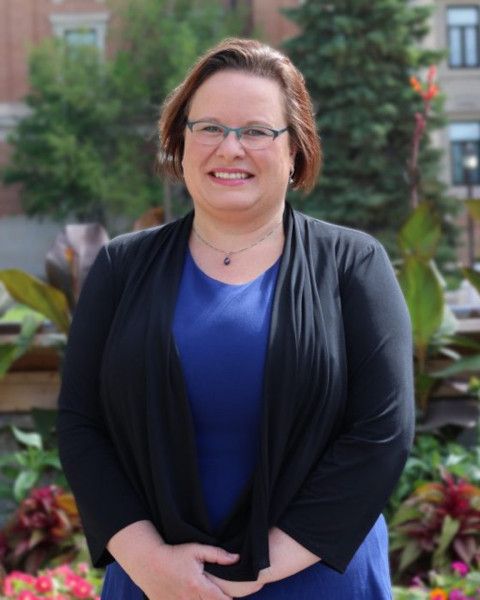Feds cut funding to local refugee organization
‘We really need these services,’ union president says

Federal-government cuts to refugee services in downtown Winnipeg have CUPE 2348, which represents staff subject to these cuts, ringing alarm bells. Welcome Place Residence, run by the Manitoba Interfaith Immigration Council, has had its funding decreased by 82 per cent, according to the union.
“We’ve seen a reduction of 88 staff members,” Vivienne Ho, president of CUPE 2348, says.
In addition to significant layoffs in 2019, smaller layoffs have continued to occur as recently as Oct. 1 of this year. Welcome Place also locked out its settlement workers in April 2021. These ongoing labour challenges have come during the COVID19 pandemic, a difficult time for both refugees and the workers supporting them.
“For those that remain, some of the salaries are reduced up to 30 per cent,” Ho says.
Welcome Place provides free settlement services to refugees. These include interpretation and translation services, form-filling assistance, advocacy and meeting refugees at the airport.
Ho says the cuts will affect the services provided and, by extension, the refugees’ situations.
“A lot of the application is time-sensitive, and if it’s not done on time, the refugees will face a lot of crisis if and when they get deported,” she says.
This is especially concerning, since the pandemic has created bureaucratic delays in this process, according to Ho. “How can we expect refugees from war-torn states to be able to afford to fill the application?” she asks.
Dr. Lori Wilkinson, a sociologist at the University of Manitoba and expert on refugee settlement, says these funding crises and the COVID-19 pandemic occurring at the same time have really placed a strain on Canada’s refugee system.
“Looking at Canada, our refugee numbers have declined because of the COVID restrictions, but now we have a backlog, too,” she says, adding that both economic and health-related issues have exacerbated the difficulties many refugees face.
“We really need these services, especially right now with so many crises going on in different countries like Syria and Afghanistan,” Ho says.
Wilkinson says this administrative backlog means there are refugees who have “received permission to come to Canada but can’t.”
However, “just because the borders are closed, doesn’t mean the need stops,” she says. “When we start bringing more people in, the money needs to keep flowing.”
Ho is calling on the federal government to restore funding to Welcome Place and says “(you) can’t invite people in without helping them once they arrive.”
“Canada always prides itself on being a humanitarian human-rights champion,” she says. “We should step up and help these refugees,” since “there’s no one else to help them.”
Welcome Place and Immigration, Refugees and Citizenship Canada have not responded to The Uniter’s requests for comment.
Published in Volume 76, Number 05 of The Uniter (October 7, 2021)






